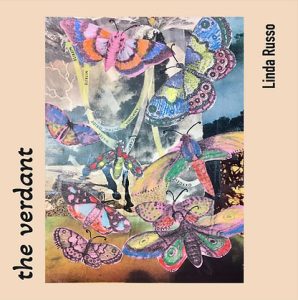New Letters – 2010/2011
Volume 77 Number 1
2010-11
Quarterly
Sima Rabinowitz
Here is what I appreciate about New Letters: “a whispery shriek like cracked clarinet reeds.” That’s a characterization, by the first person narrator, of the voice of a character in Abby Frucht’s story “Tamarinds,” and if you know anything about clarinets it will be music to your ears. It’s that precision, and the unique and exacting sensibility of New Letters’s writers, that I anticipate and am perpetually grateful to encounter. The writing is unceasingly original, competent, and always worth my time.
Here is what I appreciate about New Letters: “a whispery shriek like cracked clarinet reeds.” That’s a characterization, by the first person narrator, of the voice of a character in Abby Frucht’s story “Tamarinds,” and if you know anything about clarinets it will be music to your ears. It’s that precision, and the unique and exacting sensibility of New Letters’s writers, that I anticipate and am perpetually grateful to encounter. The writing is unceasingly original, competent, and always worth my time.
Among this issue’s standouts are a brief, rightfully disturbing essay about the experience of being taken hostage by Raad Abdul-Aziz; an odd and quite delightful hybrid piece (verbal and visual texts) about poetry chapbooks and cigarillo boxes in Copenhagen by Thomas E. Kennedy; lush prose poetry by Siobhán Scarry; wonderful short fiction from Jia Pingwa, “The Country Wife,” a long, dense, satisfying narrative artfully translated from the Chinese by Hu Zongfeng and Liu Xioafeng, accompanied by a helpful bio/background text on Pingwa; masterful translations of the Russian poet Eugene Dubnov by the poet with X.J. Kennedy and W.D. Snodgrass; and painter Peregrine Honig’s “The Birds,” preceded by an informative introduction, which includes her remarks: “I relate to birds as renters…birds are poverty jetsetters.” Her ink and pigment on paper images are intriguing, original, tiny, odd, exquisite, and sometimes almost like the whispery shriek of cracked clarinet reeds.
Another highlight is Aileen Kilgore Henderson’s memoir “In the Shadow of the Longleaf Pines,” which includes terrific photos and prose that makes me forget how tired I have become lately of family memoirs: “In 1921 I was born into Paradise, and nothing and nobody warned me that it wouldn’t last.” But, it has lasted thanks to this marvelous essay, as does this magazine’s ability to impress, sustain, and interest me issue after issue.
[www.newletters.org]




